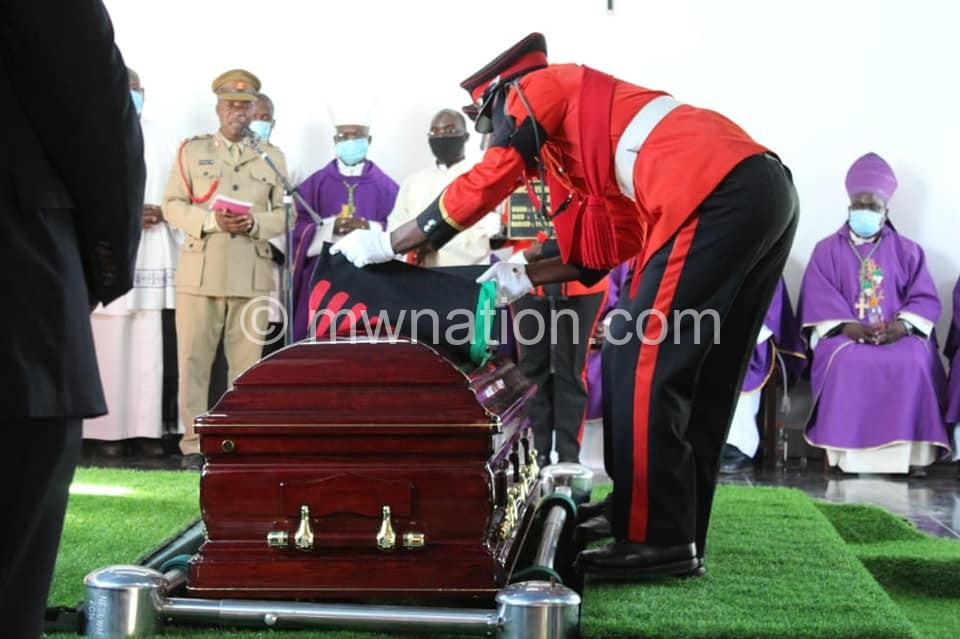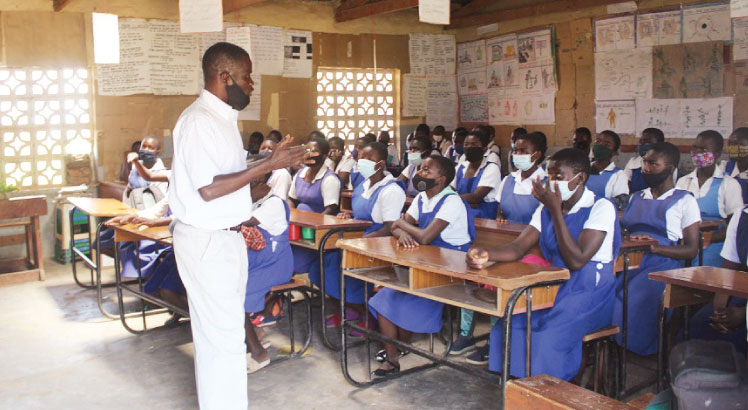Peak at Ziyaye and politics
May 5 2001. Limbe Cathedral, Blantyre. A sunny afternoon it was when Archbishop of Blantyre Tarsizius Ziyaye was consecrated to take over the baton from James Chiona, who had resigned to become an ordinary priest in February that year.
The sitting arrangement was striking. On the left, with the hall and St Maria Goretti Primary School or Limbe Girls behind them, was the political podium.

The then President Bakili Muluzi, who had postponed his visit to the newly opened Mulunguzi Dam in Zomba for the consecration, sat with his vice Justin Malewezi and other politicians, including Malawi Congress Party (MCP) vice-president John Tembo.
Tembo was then on course to unseat his boss Gwanda Chakumba ahead of the next elections slated for 2004.
And on the right, directly in front of the cathedral, were the Church leaders, with Chiona and Ziyaye as the focal point.
Chiona, born in Chiradzulu in 1924, was standing down to join other retired bishops serving as mere priests like Gervazzio Chisendera and Matthias Chimole of Lilongwe and Dedza dioceses, respectively, who had already bowed out.
The retiring bishop, who became archbishop on April 28 1968, had a legacy. He led other Catholic bishops in authoring the 1992 Lenten Pastoral Letter, the first epistle against the one-party dictatorship. With five other bishops and an apostolic administrator, Chiona authored the letter which was the first step in publicly denouncing the one-party regime.
The arrangement that Saturday afternoon in May was a symbol of how separation of church and political matters is important. It was the defining moment for Ziyaye, taking over from Chiona.
In February 2001, Pope John Paul II had accepted Chiona’s resignation. According to the Canon Law, Chiona should have retired a year earlier, as he was 76 while the law stipulates 75 as the retirement age.
The Limbe Cathedral consecration demonstrated what was to guide Ziyaye’s tenure. Separating State from Church affairs was primary.
Ziyaye, at the time, made it clear in his maiden speech: “It is not enough to say we are a God-fearing nation. Our country has a great challenge: Evil is undermining our society. We should behave, think like a God-fearing nation. We must live by example, and fear, not the way we fear the police,” he said.
Ziyaye, who became a bishop in 1992, was setting the tone for his office, before he was moved to the Lilongwe Archdiocese in September 2013. This consecration was at Maula Cathedral in Lilongwe, where he was buried amid military honours last Saturday.
From the eulogies at the Saturday ceremony after he succumbed to colon cancer in Namibia on Monday last week, it is clear that he left a mark on the Malawi political and religious landscape.
President Lazarus Chakera called him a mentor on whom he called upon whenever he was stuck. The Apostolic Nuncio for Malawi and Zambia Gianfranco Gallone likened him to a baobab in the ancestral savannah while Bishop of Karonga Diocese Martin Mtumbuka called on Chakwera to emulate Ziyaye’s style of leadership, not tolerating ‘the inefficient, corrupt and crooked’ people who have left Malawians poor.
One can pick out a few instances during Ziyaye’s tenure that show his no-tolerance for intolerance stance where politics and the levity of Malawians are concerned.
In 2004, Muluzi and his United Democratic Front (UDF) were on the campaign trail, selling Bingu wa Mutharika as a candidate, that is, after Muluzi failed to attain a third and open-term bid.
Muluzi handpicked Mutharika against potential candidates like Harry Thomson, Aleke Banda and Justin Malewezi who got zero vote each while Mutharika got about 20 votes of a UDF executive poll for the candidacy.
Towards the elections, Malewezi and Banda joined the People’s Progressive Movement (PPM) and during the campaign, Muluzi castigated Malewezi, mocking his ill-health.
Ziyaye was against the insults. In February 2004, he met Muluzi at the former president’s BCA Hills residence in Blantyre following the insults after Malewezi resigned from the UDF on New Year’s Eve.
“Insults are not good, you know. That’s my comment,” Ziyaye told The Nation at the time when he was asked about the issue.
Pushed on how he confronted Muluzi on the matter, the diplomat in Ziyaye gave a deep version.
“I did not raise that issue with Muluzi because I only went to introduce the bishop-elect for Zomba Diocese Thomas Msusa. We especially emphasised the partnership between the church and government,” he said.
Needless to say that Msusa later became Blantyre Archbishop. And, last Saturday, Msusa led the requiem mass at Ziyaye’s funeral ceremony at Civo Stadium in Lilongwe as chairperson for the Episcopal Conference of Malawi (ECM).
On the relationship between the Church and government, Ziyaye in his life simply said: “The Church is not partisan. We encourage the laity to participate in politics.”
Ziyaye was tried again during the 2004 elections. A few days before the elections, a newsletter titled Dziko ndi Anthu was on the street. It purported that bishops of the Catholic Church were urging their faithful to vote for a Catholic candidate, Bingu wa Mutharika.
The archbishop, who was born in Zimbabwe 71 years ago, was seemingly not amused.
In a statement, he said: “I am cursing those who want to confuse people because they are using our name for their benefit.
“UDF is now associated with telling lies. Nowadays, they are against the Church for criticising the imposition of their candidate.”
Mutharika won the polls, alongside his running mate Cassim Chilumpha. But, two years later, the two were parallel lines that would never meet to agree.
It was Ziyaye who initiated the talks between them in March 2006. How far that quiet diplomacy bore fruits remains untold.
When all is said and done, Ziyaye will be remembered as a man of the collar who tried everything for State and Church not to collide. A symbol that was set at his consecration that sunny afternoon in 2001.





